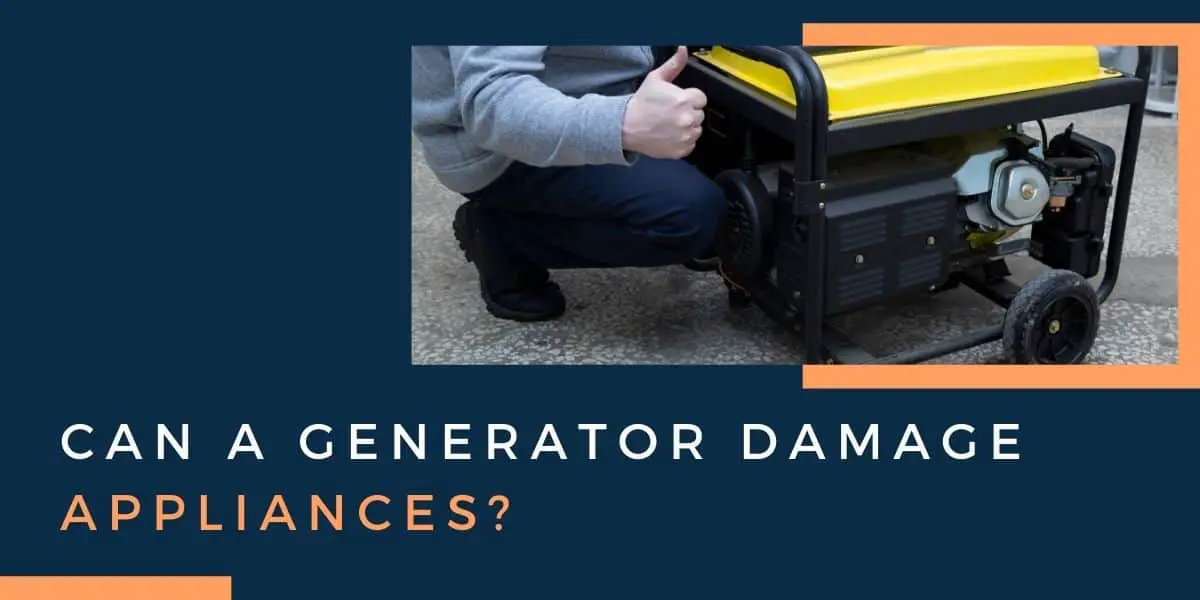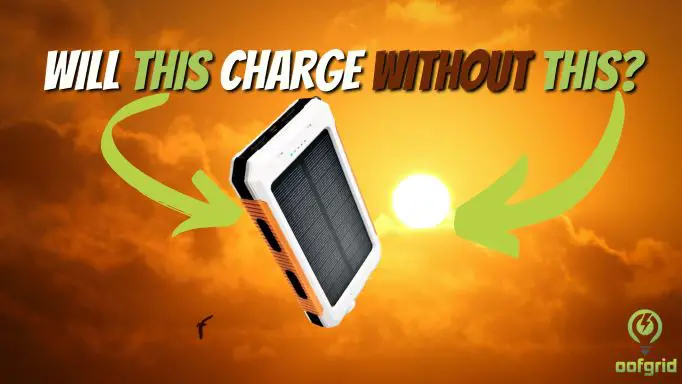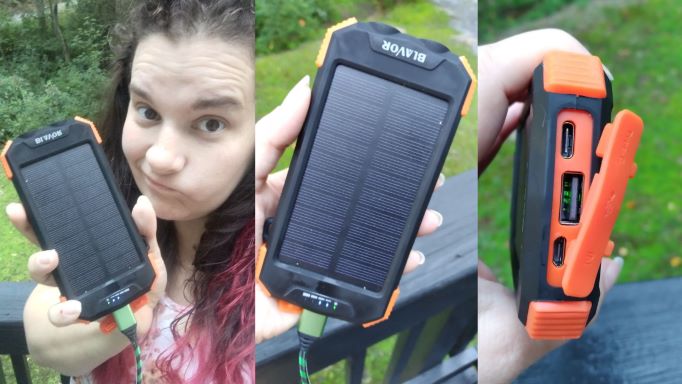Generators were initially backup power supplies used to run essential electronic appliances like lighting, cooking appliances and tools. This initial use, however, is becoming quite dated, not only are generators being used to power appliances as a primary power source (camping, outhouses, etc..) but appliances are now much more advanced than they were 20, 10 and even 5 years ago.
With the improvements in technology we’ve also seen an increase in price for many of our everyday appliances and therefore an important question to ask when it comes to backup power is can a generator actually damage appliances?
A generator is unlikely to damage appliances if you use an inverter generator which will provide steady, repeatable and clean energy. Your appliances only risk damage from using a generator if you use a non-inverter style generator (or generator from a non-reputable brand) that will not provide clean energy and can therefore be prone to power surges that could damage appliances.
Generators are built with the sole purpose of providing a power supply for your appliances and in most cases, can be just as reliable as the energy that is used by the grid.
There are, however, very specific scenarios whereby a generator could potentially cause damage to your appliances and in this article, we are going to run through how they could potentially damage your appliances and how you can reduce the risk of this happening.
Can a Generator Damage Appliances?
The most common way for a modern appliance to be damaged by a generator is if it’s subjected to a power surge that could overload the circuit board or microchip, especially for sensitive technology like mobile phones, computers and smart technology.
Power surges or unstable power supply can be caused when using a non-inverted generator or a generator from a non-reputable brand using low-quality parts and it’s the unstable power provided by these kind of generators that could cause damage to your appliances.
We want to emphasize the term ‘could’ as the actual occurrences whereby a generator has damaged an appliance are very rare.
As long as you use an inverter generator (preferably from a reputable brand that is associated with the Portable Generator Manufacturers Association) then this should produce a constant and clean energy source that is free from power surges and help to keep your appliances running safely.
In general, a generator shouldn’t damage an appliance under normal running conditions and this is based on a few key factors that first need to be met:
- Your generator needs to support the starting watt requirements for the appliance (starting watts are usually much higher than the running watts)
- Your generator needs to support the running watts for all the appliances running from it combined (a fridge with a running requirement of 700W and a computer with a requirement of 150W would need a generator that can power at least 850W in addition to the starting wattage requirements of both items)
What we have found is that generators manufactured by non-reputable brands can pose the greatest risk to damaging your appliances.
This is because these generators, in a similar scenario to non-inverter generators, can have components that are not made to a high enough manufacturing or quality standard which can then result in power fluctuations and surges.

Can Appliances Damage a Generator
The biggest issue that you need to be aware of is not actually whether your portable generator can damage appliances but the damages that the appliances can do to the generator if used irresponsibly or dangerously.
This is because overloading your generator with appliances that have too high of a wattage (meaning they require more energy than your generator can supply) can actually lead to overheating the generator and risking a potential fire hazard.
Therefore, as mentioned above the safest way to ensure that your appliances and generator do not become damaged during use is to ensure that you have a generator that can supply enough wattage to support the appliances being used and that your appliances do not overload the generator.
Final Thoughts: Can Appliances Damage a Generator
Typically, generators will not damage your appliances if you use an inverter generator that will provide a continuous, consistent, and reliable source of energy (clean energy), the key to avoiding damage to your electronics it to avoid power surges which could be caused by non-inverter style generators.
You should also ensure that the generator has the required wattage output to support the appliances used and It’s also important to ensure that you also don’t overload your generator as this can pose a serious fire hazard.
In general, most appliances are fine to run on generators that don’t create power surges which is why an inverter style generator will be one of the safest options for ensuring that your appliances are not damaged during use.






